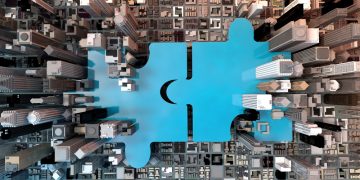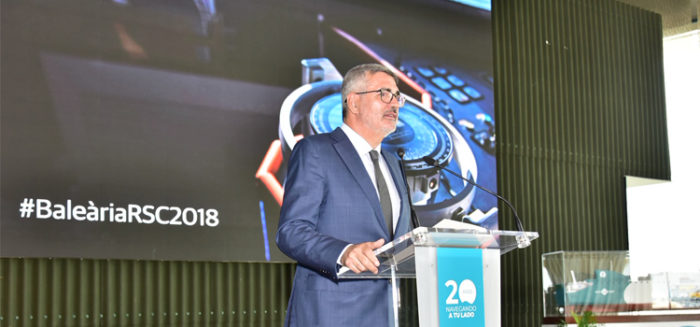In 2018, Baleària handled 4.320.000 passengers, an increase of 11% and 1.209.000 vehicles, an increase of 17% on its 23 routes with an overall of 1.109.000 on its five international routes. Cargo accounts for half of Baleària’s business, with a growth of 3.5%.
Specifically, Adolfo Utor, Baleària’s President, announced at a press conference that the passenger development reached the 26% while sales exceeded 84 million euros (16% more).
In the meantime, half of the group’s passengers, 2.277.000, travelled the lines connecting the Iberian Peninsula to northern Africa (Morocco, Algeria, Ceuta and Melilla); The President noted that the northern Africa is the area where the Valencia-based shipping company is growing the most.
Referring to cargo, he stated that it makes half the business for Baleària, as 5.800.000 linear metre goods were transmitted.
Cargo is currently concentrated in the Balearic Islands with 79% of the total but it’s a very mature market meaning growth comes from the rest of the routes.
Moreover, Baleària is at the peak of expansion, concerning the new routes on the Alboran Sea and around the Canary islands.
Concerning the company’s economic results, the high cost of the start-up of the new traffics to be consolidated, together with the increase in the price of fuel in 2018, concluded to a reduced profitability. Specifically, in spite of the shipping company bringing in €381,400,000 (5% more), EBITDA was 14% lower (€70,300,000) and the net profit was 37% less (€27,400,000).
Utor forecasts that this trend will remain stable through this fiscal year, as new traffic routes will be consolidated and the ship engine refittings that are under schedule, will be completed.
In the meantime, Utor talked about the company’s sustainability, as the economic development will be compatible with the environmental preservation, social inclusion and equal opportunities.
He highlighted that the company seeks competitiveness without forgetting these criteria.
As an example, he referred to the company using LNG, commenting that it was the company’s contribution to fight climate change.
Natural gas is a cleaner energy which goes hand in hand at Baleària with digitization. They are two strategic lines that perfectly combine in our smart ships.
… Utor stated.
Additionally, by the end of 2019, Baleària will have nine gas-propelled smart ships, three of which will be newly-built and six of which are already in its fleet, but will have new engines (partially funded by the EU).
Thus, the Hypatia de Alejandría, which was finished in 2018, and the Nápoles, the engine change for which began that same year, have made the use of natural gas at Baleària a reality.
Baleària’s sailing in 2018 was more eco-efficient.
… Utor highlighted, based on the fact that the miles sailed by the fleet increased by 13% yet its CO2 emissions only rose by 6.5%.
As far as the four eco fast ferries added to the Eivissa-Formentera route in 2018, the ratio of CO2 emissions per mile dropped by 36% in comparison to the fleet operating previously.





























































